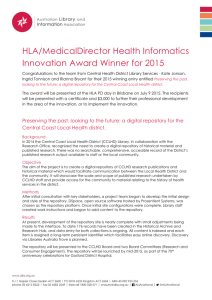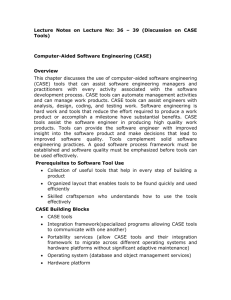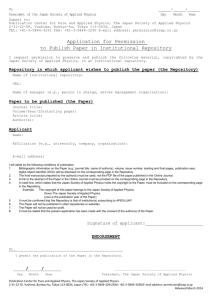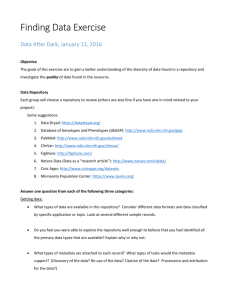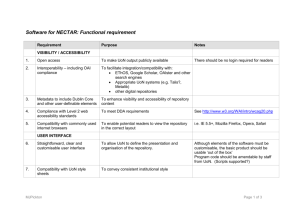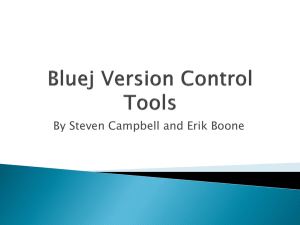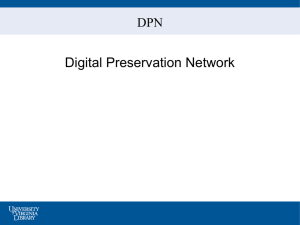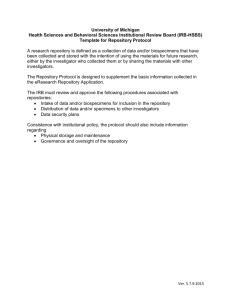Selecting a Data Sharing Repository - University of Virginia Library
advertisement
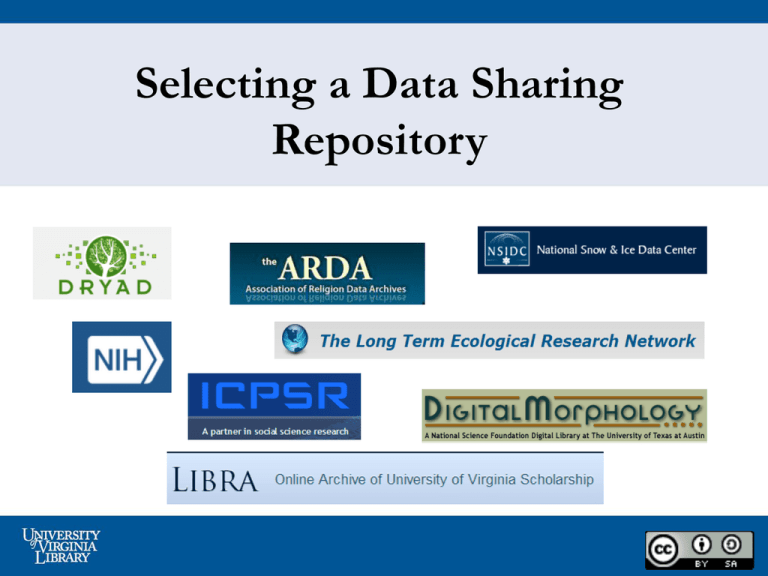
Selecting a Data Sharing Repository Why Share Data? • Enabling others to replicate and verify results as part of the scientific process • Allows researchers to ask new questions and conduct new analyses, and improve research methods • Linking to research products like publications & presentations • Creating a more complete understanding of a research study • Meeting the expectations of sponsors, funders, publishers and institutions • Receiving credit for data creation for career advancement • Reduces the costs of duplicating data collection 2 Questions to consider when selecting a data sharing repository Does your publisher specify a location for the data supporting an article? Does your discipline recommend a specific repository or archive? Does your funder identify a specific location or facility? Does your institution have specific requirements? http://datablog.is.ed.ac.uk/files/2013/12/bitsissue8_2-235x300.png 3 Data Sharing Repository Best Practices Choose early Early selection helps prevent surprises at the end of your research when you deposit your data Metadata Knowing the requirements at the start will enable you to design your data collection materials for easier metadata creation Persistent Identifiers Data embargo Be sure the repository supplies one so your data is findable, citable, and can be linked to your publications If you want to embargo your data be sure it is allowable, and learn about any restrictions before you submit Data access Identify any barriers that may limit or restrict data reuse 4 Data Sharing Repository Requirements What kinds of data do they accept? Do they require specific file types? Is it discipline specific, or do they accept anything within a range of fields? Choose what works best for you and your data. Repositories may have file type requirements. Choosing the appropriate file types for your research makes conversion at the end easier. Do they have a rights or policy statement? Do they provide long-term preservation? Does the repository have an acceptable intellectual property rights policy, and a privacy policy that protects you and your data? Does the repository only store the data, or does it curate your data for reuse by others? Choose the one that best meets your needs. 5 Data Sharing Repository Advantages Services provided: • Persistent Identifiers -- unique and citable • Access controls • Terms of Use & Licenses • Repository guidelines for deposit • Data preservation -- migrating to new formats or emulating old formats • Professional backup & documentation • Repository Standards ensure commitment and quality http://www.plosone.org/article/info:doi/10.1371/journal.pone.0078080 6 Identifying a data sharing repository What do the icons mean? http://re3data.org re3data.org is the global registry for research data repositories. Use it to find the appropriate repository for the permanent sharing and storing of your data. http://www.plosone.org/article/fetchObject.action?uri=info:doi/10.1371/journal.pone.0078080.g001&representation=PNG_ M 7 Consider placing your data in the UVa Institutional Repository: Libra • • • • • • • • Opened in 2011 Thesis and dissertations Articles Conference paper, posters Article preprint Book Chapter in an edited collection Datasets Data redundancy is important, so placing your data in two or more repositories or archives is a great idea! 8 Need assistance or have questions? • The UVa Library Research Data Services provides consulting and training services to UVA researchers and graduate students in all aspects of research data management. • We can help you navigate and negotiate through the tricky issues and many approvals in order to responsibly share your research data. • Contact us at dmconsult@virginia.edu 9

